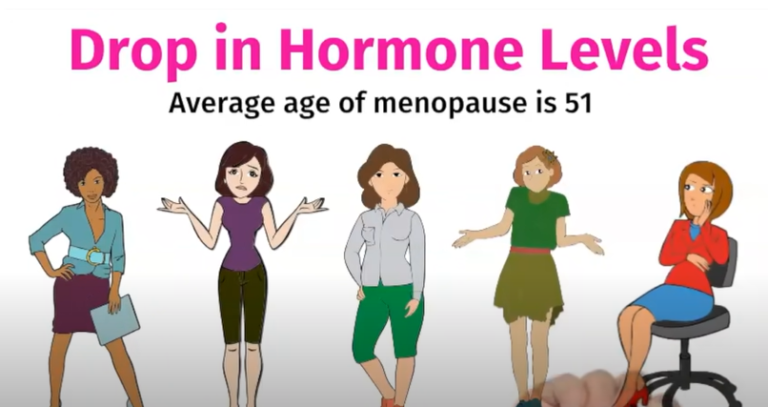How Hormonal Changes Affect Weight Loss – Impact of Imbalance
As an Amazon affiliate I earn from qualifying purchases at no extra cost to you.
Disclaimer:
This article contains some highly sensitive material and will not be suitable for many readers. However, it is not written to hurt or put down anyone who may carry extra weight. Furthermore, I am not a physician and cannot give medical advice. It is always best to consult with your primary care specialist. My purpose is to inform and educate anyone interested in health and wellness.
Discover the intricate links between hormonal changes and weight loss. Learn about the roles of different hormones, the impact of hormonal imbalance, and strategies to manage your hormones for better weight control. For example, you can take tests at home to learn how hormonal changes affect weight loss. You’ll also be able to tell if you have a particular deficiency. https://amzn.to/3WIKYCN
How Hormonal Changes Affect Weight Loss?
Weight loss is a struggle that many face globally, with 39% of adults worldwide overweight and 13% obese as of 2016, according to the World Health Organization (WHO). While diet and physical activity are undisputed components of weight control, emerging research suggests an often overlooked factor: how hormonal changes affect weight loss. Hormones — the body’s chemical messengers — play crucial roles in appetite regulation, fat storage, and metabolism.
Therefore, understanding the subtle interplay of hormonal changes and weight loss offer new strategies to manage body weight effectively.
Weight loss management has never been easier, thanks to the latest interventions.
Hormonal Changes and Weight Management
Hormones are complex biochemical messengers in the human body, forming an integral part of the endocrine system. They are synthesized and secreted by various specialized glands in the body, such as the hypothalamus, pituitary, thyroid, adrenal glands, pancreas, ovaries, and testes.
Functioning in harmony, these glands secrete hormones directly into the bloodstream, which carries them to target tissues where they bind to specific receptors and exert their effects.
The pivotal role of hormones is to maintain homeostasis, which is the body’s internal equilibrium that keeps physiological functions stable. our behavior, emotions, and physical health. Furthermore, hormones directly impact metabolism — the biochemical process that converts food into energy — and dictate how our bodies store fat, and where.
Hormones also affect our appetite and feelings of satiety. Hence, any imbalances or disruptions to these hormonal systems has significant consequences on body weight and overall health.  When fat stores are ample, leptin is secreted into the bloodstream where it travels to the hypothalamus, the part of the brain that regulates hunger and satiety. Ghrelin levels rise before meals and fall after eating.
When fat stores are ample, leptin is secreted into the bloodstream where it travels to the hypothalamus, the part of the brain that regulates hunger and satiety. Ghrelin levels rise before meals and fall after eating.
Interestingly, research, such as a study published in the Journal of Clinical Endocrinology and Metabolism, demonstrates that diet-induced weight loss disrupts this delicate balance. Low-calorie diets often lead to increased ghrelin and decreased leptin levels, which result in increased hunger, a lower metabolic rate, and potential weight regain. Therefore, understanding these hormones offers essential insights for sustainable weight management strategies.
Insulin: The Blood Sugar Regulator

Insulin, another vital hormone in weight management, is secreted by the beta cells of the pancreas. It is primarily known for its role in regulating blood glucose levels and is central to the body’s metabolic process.
After eating, blood glucose levels rise, triggering the release of insulin. Insulin then facilitates the transport of glucose from the bloodstream into the cells where it is either used for immediate energy production or stored for later use as glycogen in the liver and muscles or as fat in adipose tissue. Hence, insulin essentially controls the body’s energy storage.
However, in conditions such as obesity and insulin resistance, the body’s insulin response becomes impaired, leading to a condition called hyperinsulinemia, characterized by persistently high levels of insulin. Hyperinsulinemia promotes the storage of fat in adipose tissues, resulting in weight gain and making weight loss difficult.
Cortisol: The Stress Hormone
Under stressful situations, cortisol stimulates a process called gluconeogenesis, in which the liver produces glucose to provide immediate energy. This action, in turn, leads to increased hunger and a craving for energy-dense, carbohydrate-rich foods. Consuming these types of foods results in an overconsumption of calories and, subsequently, weight gain.
The Impact of Hormonal Imbalance on Weight Loss
Hormones are the master regulators of our physiological processes including metabolism and body weight, allowing our bodies to function like finely tuned machines. Hormonal imbalances, which result from a disruption of this delicate balance, has a major impact on weight loss efforts.
Many things, including one’s way of life, one’s exposure to the environment, and one’s genetic predisposition, might contribute to hormonal imbalances. The regulation of hunger, energy expenditure, and fat storage are all affected by these abnormalities, making it difficult to maintain a healthy weight if they persist.
Weight Loss and Estrogen Imbalance
One of the most significant female sex hormones, estrogen, also helps keep the pounds off. By influencing these processes, it aids in maintaining a healthy weight. This change makes it harder to lose weight since it slows the metabolism and raises insulin resistance. Also, keep an on on your increases in belly fat.
Weight Loss and Hypothyroidism
When the thyroid gland fails to produce enough thyroid hormones, a condition known as hypothyroidism occurs. Thyroid hormones play a role in controlling basal metabolic rate. Low levels of thyroid hormone restrict energy expenditure, making it difficult to lose weight and even eat less. 
Understanding and addressing these discrepancies illuminates a more direct route to long-term, healthy weight loss.
Strategies for Managing Hormones for Better Weight Control
Learning how hormones affect weight reduction aid in the development of successful weight management plans. Among these are:
Regular Physical Activity and a Healthy Diet
Hormones are more likely to remain in harmony if one engages in regular physical activity and consumes a diet rich in proteins, healthy fats, and complex carbohydrates. Walking is a great way to get started on your wellness journey. Here’s a link: https://amzn.to/4j96Ijw
Coping with Stress
Yoga, meditation, and other stress-reduction practices helps keep cortisol levels where they should be, which aids with weight maintenance.
Routine Checkups
In order to lose weight, it’s important to get regular checkups so that any hormonal abnormalities, such as hypothyroidism, can be treated. Better control of these disorders is possible after an early diagnosis. 
Final Take Home
Keeping tabs on our hormone levels will help us lose weight more efficiently and successfully.
Rachele, Founder
(website) mybluegenes.com
(email) rachele@mybluegenes.com






